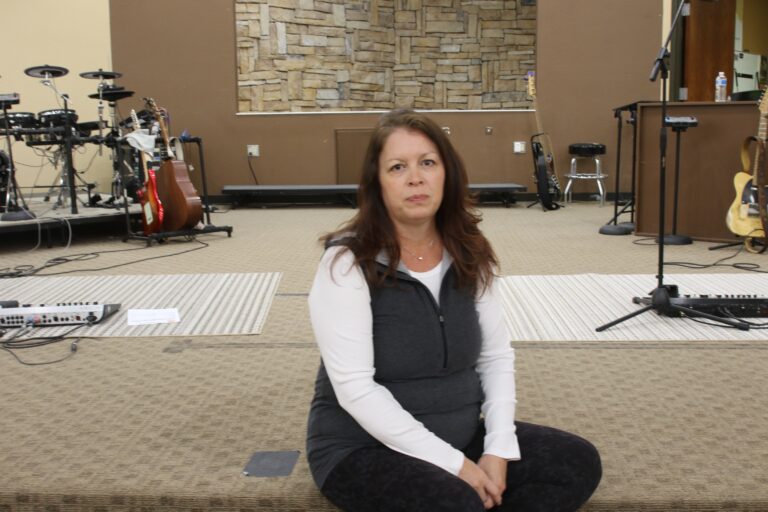Through all the chaos, God is still at work

By: Pastor David Grousnick
I consider it divine good fortune that we have a scripture lesson, John 2:1-11 so early in the year which encourages us to ponder a miracle. We need to become more sensitive to the possibility of miracles. Such a sensitivity will help us recognize present miracles, which we either do not see or which we take for granted.
And it will prepare us to receive still more miracles.
Walt Whitman felt that “each part and tag” of his own person was a miracle, and that “a mouse is miracle enough to stagger sextillions of infidels.” He reminded us that we are surrounded by the glorious and the miraculous and do not know it.
Science ought to have increased our sense of awe, as it has unfolded the marvels of the heavens above and mysteries of our bodies within. But we take the attitude that if we know how far it is to a given planet, we have, therefore, encompassed all its significance.
We need to know that God is at work in our world. The affairs of this world, and of our individual lives, often seem to be out of control. At such times we can be reassured by the knowledge that God has worked wonderfully in days past, and that he is still at work.
So, I direct our attention to a story from the Gospel of John, generally referred to as Jesus’ first miracle. I am impressed that this miracle came to pass, not in the confines of a place of worship, nor even in a uniquely religions occasion but where people were celebrating one of the happy social events of our common life – a wedding.
The Jews attached great importance to the high moments of life. Thus, a wedding was not just a brief ceremony, but an experience shared by the entire community.
The typical wedding feast could last up to seven days. That sounds strange to our modern way of thinking, but this offered a bright interlude in an otherwise dreary existence.
The ceremony would begin on Tuesday at midnight. After the wedding the father of the bride would take his daughter to every house so that everyone might congratulate her. It was a community experience. Weddings were a time of joy.
Years ago, when Johnny Carson was the host of The Tonight Show he interviewed an eight-year-old boy. The young man was asked to appear because he had rescued two friends in a coalmine outside his hometown in West Virginia.
As Johnny questioned the boy, it became apparent that the young man was a Christian. So, Johnny asked him if he attended Sunday school.
When the boy said he did Johnny asked, “What are you learning in Sunday school?”
“Last week,” came his reply, “our lesson was about when Jesus went to a wedding and turned water into wine.” The audience roared, but Johnny tried to keep a straight face.
Then he said, “And what did you learn from that story?” The boy squirmed in his chair. It was apparent he hadn’t thought about this. But then he lifted up his face and said, “If you’re going to have a wedding, make sure you invite Jesus!”
The little boy was on to something. Weddings are times of joy and symbols.
At the wedding, which Jesus attended in Cana of Galilee, there was great joy but a problem developed. There was a shortage of wine. Not only was that a social embarrassment, it was also a symbol. For a wedding to run out of wine was an omen that there was little chance of this particular marriage reaching its full potential, maybe joy was not meant for this couple.
Joy and symbols.
There was once an article in Reader’s Digest by a man named Patrick Cooney titled, “Why I Wear Two Wedding Bands.” Cooney had worn two wedding bands for more than a dozen years. When he’s asked about them, he responds, “I have two wives.” He’s kidding, of course.
One day a stranger would not let him off with this glib answer about why he wears two bands. So, Cooney spilled the whole story.
He explained his father died in 1999. As they were saying their final farewells at his funeral, his mother, who had been married to his father for 50-plus years, removed his father’s wedding band and handed it to Patrick. Surprised, he placed the gold band on his left middle finger, next to his wedding band. There it has remained.
He told the stranger that he wears his father’s wedding band to honor his father and his parents’ marriage. He also wears it to remind himself to be the son, brother, husband, and dad that his father wanted him to be. He is now 60 years old and has been married for 30 years.
The stranger walked away, then turned back and said, “Sir, you know, I have my father’s wedding band in my sock drawer at home, and beginning today, I am going to start wearing it.”
Powerful story. But isn’t it true of all our relationships? It’s important not only to be faithful and attentive to our spouse, but to our children or our parents and our friends.
I can tell you right now, without any hesitation at all, that it is God’s will for us to take care of our relationships.
David Grousnick, is the Pastor at the First Christian Church in Artesia.



